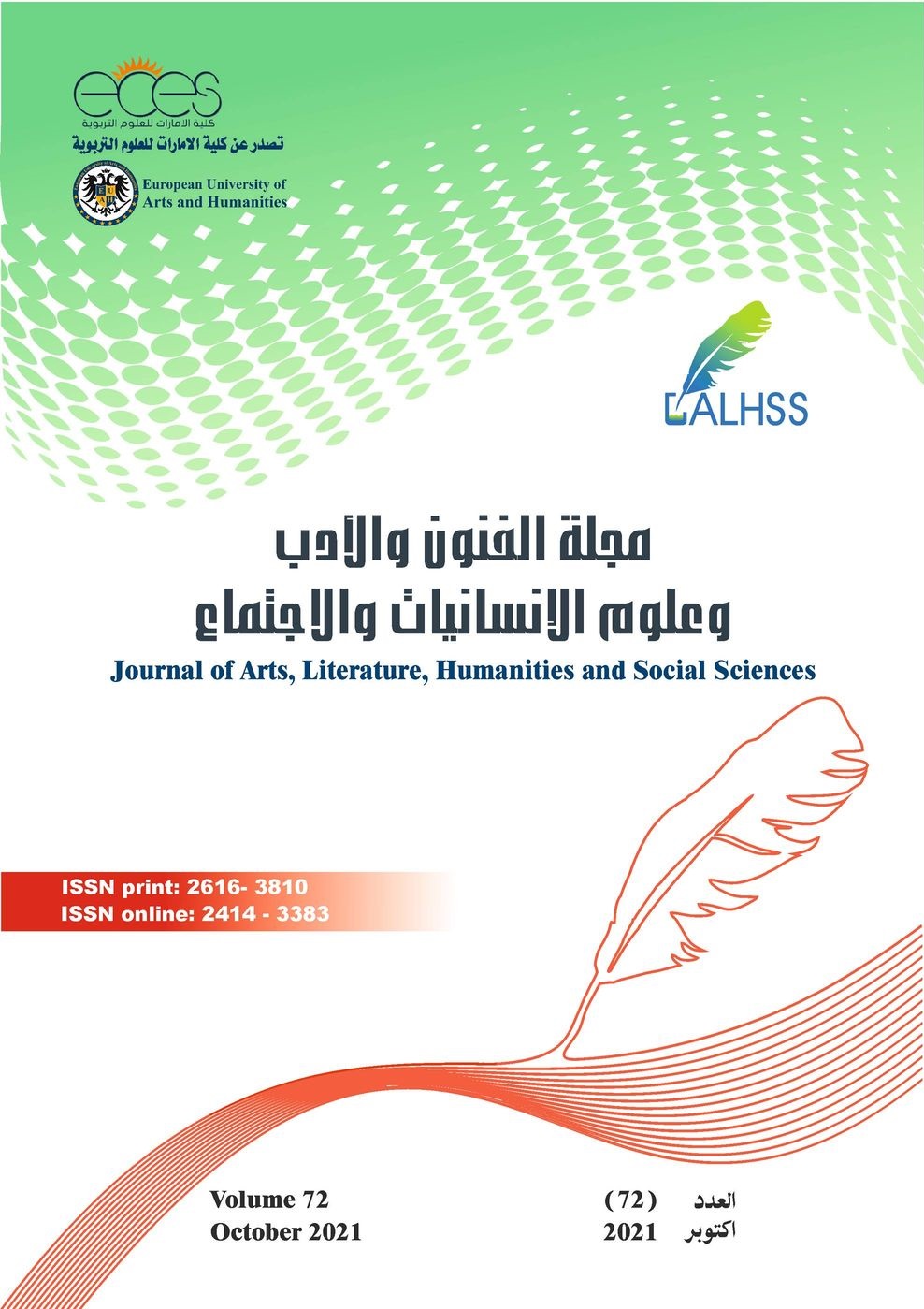Measuring Self-deception and its Relationship to some Variables among Government Directorates Employees in the Center of Dohuk Governorate
(بناء وتطبيق)
Abstract
The current research aims to: Building a scale to measure self-deception among the employees of the government department in the center of Dohuk governorate, and measuring the level of for the following variables (gender, academic qualification, self-deception, and knowing the significance of differences in the level of self-deception according to social status), and to achieve these goals, the researcher built a self-scale. To achieve the objectives of the research and data processing statistically The following statistical methods were used:
1- Building a scale to measure self-deception consisting of (50) items with answer alternatives (always, sometimes, often, rarely, never) according to the theory of single-item response in psychometrics and that it has the psychometric properties necessary for psychological measures of discriminatory strength, validity and stability of items with availability Characteristics of honesty, stability, and sensitivity to the appropriate scale.
2- There is a statistically significant difference between the arithmetic mean of the level of self-deception among male and female employees in government departments of (163.66), and the theoretical average of the self-deception scale of (150) degrees indicating the presence of self-deception among male and female employees at a level more than the average.
3- The existence of a statistically significant difference in the level of self-deception according to gender (males, females) and in favor of females.
4- There are no statistically significant differences in the level of self-deception and according to the marital status variable (single, married).
5- There are statistically significant differences in the level of self-deception among male and female employees according to the educational qualification variable, where the level of self-deception among male and female employees who hold a bachelor’s degree or above came in the first place, and holders of a diploma in the second place, and holders of a preparatory certificate or less in the third place .
In light of the results of the research, the researcher reached a number of conclusions, recommendations and suggestions necessary for the parties related to the subject of the study.
References
2- أحمد، عطية محمد سيد (2008): التلكؤ الأكاديمي وعلاقته بالدافعية للإنجاز والرضا عن الدراسة لدى طلاب جامعة الملك خالد بالمملكة العربية السعودية، جدة، السعودية.
3- الباتع، محمود (2006): خداع النفس، فتح بتاريخ 6-12-2020. (www.ahewar.org)
4- البدري، سميرة موسى عبدالرزاق والحكاك، وجدان جعفر جواد عبدالمهدي (2010): بناء مقياس الاطمئنان النفسي لدى طلبة جامعة بغداد، مجلة البحوث التربوية والنفسية، العدد التاسع والعشرون، بغداد.
5- الجميلي، كريم حسين حمد (2010):خداع الذات وعلاقته بالخجل الاجتماعي وقلق التصور المعرفي، جامعة المستنصرية، كلية التربية، بغداد. (اطروحة دكتوراه غير منشورة)
6- الجنابي، ايمان حسن وحسون، نجاح حاتم (2017): الطلاق العاطفي وعلاقته بخداع الذات لدى الموظفين المتزوجين في جامعة بغداد، مجلة الأستاذ، العدد الخاص بالمؤتمر العلمي الخامس، بغداد، العراق.
7- حسون، سناء لطيف (2012): الثقة بالنفس وعلاقتها بخداع الذات لدى طلبة الكلية التربوية المفتوحة، مجلة كلية التربية، العدد (2)، بغداد.
8- الخصوصي، ايمن منير حسن (2018): التنبؤ بالخداع الذات من تفكير الاخلاقي و وجهة الضبط لدى طلبة الجامعة، مجلة العلوم التربوية، الكلية التربوية، جامعة الازهر، ج (1) العدد (4) القاهرة، مصر.
9- الزاويتي، زيا كورش بيثون (2014): قياس سلوك المماطلة لدى طلبة الجامعة في اقليم كوردستان العراق (بناء وتطبيق)، جامعة دهوك، فاكولتي العلوم التربوية، إقليم كوردستان العراق. (رسالة ماجستير غير منشورة)
10- الصرن، رعد حسن (2000): فن وعلم إدارة الوقت، ج1، دار الرضا للنشر، دمشق - سوريا.
11- عباس، خضر (2011): سايكولوجيا الخداع، مدونة الدكتور خضر عباس، العراق، فتح بتاريخ 27-8-2021. (www.drabbass.wordpress.com)
12- عطا الله ، مصطفى خليل محمود (2019):اليقظة العقلية لمتغير وسيط بين صعوبات التنظيم الانفعالي و خداع الذات لدى طلاب الجامعة، كلية التربية، جامعة اسيوط، المجلة العلمية، مجلد (35)، عدد (29)، مصر.
13- علوان، نور (2017): خداع النفس عادة مرضية، مجلة نون بوست، فتح بتاريخ 6-12-2020. www.noonpost.com) (
14- عمران، فاطمة محمد علي (2020): ظاهرة الخداع والكمالية وفاعلية الذات والرضا عن الحياة لدى طلبة كلية المتفوقين، مجلة التربية الخاصة والتأهيل، مجلد (10)، عدد (35)، كلية التربية، جامعة اسيوط، مصر.
15- محمد، عبد النعيم عرفه محمود (2019): علاقة خداع الذات بالسعادة النفسية والتلكؤ الأكاديمي لدى طلاب الجامعة، مجلة كلية التربية، جامعة الأزهر، ج3، العدد (183)، مصر.
16- Erez, A. Judge. T (1994): Dispositional Source of Job Satisfaction:The Role of Self-Deception, New York State School of Industrial and Labor Relation Cornell University, Center for Advanced Human Resource Studie.
17 -Fernbach, P. Hagmayer,Y., & Sloman, S .(2014). Effort denial in selfdeception.Organizational Behavior and Human Decision Processes, 123,1-8.
18- Kelly, C. Lee, Y. & Bananno, Ge. (2009): Rasch Modeling of the Self-Deception Scale of the Balanced Inventory of Desirable Responding, Educational and Psychological Measurement, 69(3), 438-458.
19- Michel,C, Newen, A, (2010): self – deception as pseudo- rational regulation of belief, Journal homepage, Ruhr- univers it , Bochum, Germany.
20- - Tenbrunsel , A & Messick,D. (2004): Ethical Fading : The Role of Self – Deception in Unethical Behavior . Social Justice Research, 17(2) , 125.
21- Van Hippel, W., & Trivers, R. (2011): The evolution and psychology of self-deception. Behavioral and Brain Sciences, 34(1), 1–56.pp1.



